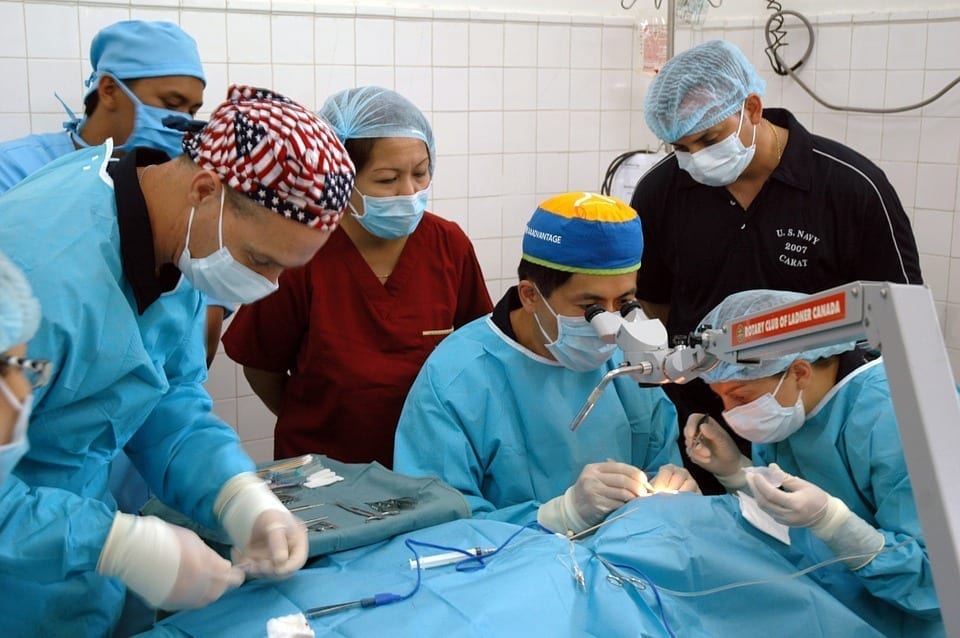Malpractice insurance companies employ teams of the best attorneys to get out of giving away compensation easily. That’s why your odds at winning a medical malpractice case are a lot higher with an expert medical malpractice attorney on your side.
The majority of medical professionals take their responsibility of caring for their patients to their best ability very seriously. Unfortunately, thousands of patients experience some form of medical malpractice annually in the US and around the world.
The negative impact that medical negligence could have on one’s life is substantial. It often leads to large costs, considerable pain, and in worst cases, fatality.
The worst part is, most victims of medical malpractice do not even realize the opportunity they have to seek justice and get compensated for their injuries.
Medical Malpractice Defined
The American Board of Professional Liability Attorneys defines medical malpractice as follows:
“Medical malpractice occurs when a hospital, doctor or other health care professional, through a negligent act or omission, causes an injury to a patient. The negligence might be the result of errors in diagnosis, treatment, aftercare or health management.”
To be able to file a medical malpractice lawsuit against a physician or a medical institution, you and your attorney must establish the four “D’s” of medical negligence. That’s why it is crucial to know what these factors are and how they influence the outcome of your case.
What Are the 4 D’s of Medical Negligence?
The four D’s of medical negligence are:
- Duty
- Dereliction
- Damages
- Direct cause
Duty
Duty refers to “duty of care”, a legal obligation on individuals (usually professionals) that requires their adherence to a standard of reasonable care.
This defines the relationship between a doctor or medical professional, and a patient. Medical professionals have a duty of care to follow procedures, treat patients, inform patients of any potential risks of their treatment, and keep their patients’ information confidential.
In some cases, a medical professional might not be able to properly care for a patient; In this situation, it’s their responsibility to refer the patient to a specialist.
You can prove duty of care in court by providing copies of your medical records with your doctor.
Dereliction/Deviation
Dereliction from the duty of a health care provider, or deviation, is basically when a medical professional deviates from the expected standard of care.
Since healthcare providers are held to a higher standard than someone who isn’t licensed to practice medicine, they could be found liable for malpractice if they deviate from the industry’s accepted standards of service.

Some examples of dereliction/deviation from the standard of care include:
- Misdiagnosis
- Medication Errors
- Surgical Errors
- Conducting unnecessary procedures
Damages
Damages happen when a medical professional’s dereliction from standard care causes any type of injury, whether physical, mental, emotional, or financial.
Damages are proved through the submission of medical records, statements from other physicians, and prescription records. The evidence must establish that the medical professional’s breach of duty did in fact cause the injury and damages.
Direct Cause
A valid medical malpractice suit must establish that the claimant’s damages are directly caused by a medical professional’s negligence. This is why direct cause is the second most litigated legal element of medical malpractice.
Proving the direct cause can be rather difficult at times. For example: a patient’s fractured leg isn’t healing properly as a result of the orthopedist not applying the cast correctly and according to industry standards. In a situation such as this, the patient has all the rights to hold the orthopedist accountable for their injuries.
Contrarily, if the patient was responsible for compromising the cast which caused their leg not to heal properly, this would not be a direct cause and the patient would be deemed responsible.
Seek Justice for Medical Malpractice
Medical malpractice cases are fairly complex, often involving hurdles and roadblocks along the way to make things harder.
For instance, you might produce a medical expert as a witness to assert your argument and prove that the defendant has deviated from the standard of care. On the other hand, the defendant might also produce a medical expert witness that will assert the exact opposite. It will ultimately be up to the jury to decide.
Malpractice insurance companies employ teams of the best attorneys to get out of giving away compensation easily. That’s why your odds at winning a medical malpractice case are a lot higher with an expert medical malpractice attorney on your side. Your attorney will hold the negligent party accountable in court while you focus on getting better.


Join the conversation!